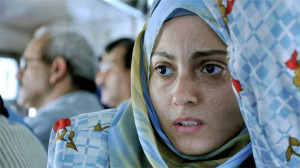In Mohamed Diab’s film Cairo 678, a woman who rides crowded Egyptian buses is sexually harassed in the buses’ aisles — not just once but repeatedly, on different days, by different men who think they can grope her with impunity. Eventually, the woman (portrayed by Egyptian actress Bushra Rozza) reaches her limit and begins stabbing harassers in the groin. “You expect me to be sane?” her character asks another woman. “They deserve what they get.”
Diab’s 2010 drama, which centers on three female characters who are attacked, was a box-office hit in Egypt and started a national dialogue there about sexual harassment. The film also delved into issues of oppression that were at the heart of Egypt’s 2011 uprising, presaging the revolution with its dramatization of a society on the edge of chaos. Cairo 678 screens Thursday, Oct. 10 at New People Cinema (1746 Post Street) as part of Diab’s Artist in Residency with the San Francisco Film Society. Diab will also talk about Cairo 678 and his career at FilmHouse (1426 Fillmore Street) on Monday, Oct. 14. Each year, the society picks a filmmaker of note for its Artist in Residence program, and Diab was an ideal choice given his experience at shepherding a movie that is still having an impact in Egypt and is still reaching new audiences around the world.
Diab based one of Cairo 678‘s three major characters, a woman named Nelly, on the real life of Noha Roushdy, who in 2008 sued a man who sexually attacked her — the first such suit in Egypt. Roushdy won her case, which led to her attacker’s imprisonment, and new laws that criminalize sexual aggression. Before making Cairo 678, which is his directorial debut, Diab, 35, was the screenwriter for four big Egyptian films: Real Dreams, The Island, The Replacement, and Congratulations.
“All four films were blockbusters that had the biggest stars in Egypt,” says Diab in an interview in San Francisco. “When I started making films, I wanted to make big blockbusters with the biggest stars. And then I discovered that’s not what I really needed. I needed to make something that was close to my heart, something that had a big message. I’d heard about harassment, and as a man in Egypt, you cannot know about those things, because women didn’t speak about it. I’d heard of it, and then came the trial of Noha Roushdy. I went to the trial, and one of the cameramen covering the trial was making fun of her. I was sitting next to him. And an attorney walked by who also made fun of her, saying, ‘Oh, women, they just exaggerate.’ I never try to see black and white, so even those people, I didn’t see them as bad people. I just saw them people who were not well-informed, who needed to see the world through Noha’s eyes. So I decided to make a film about her story.”




